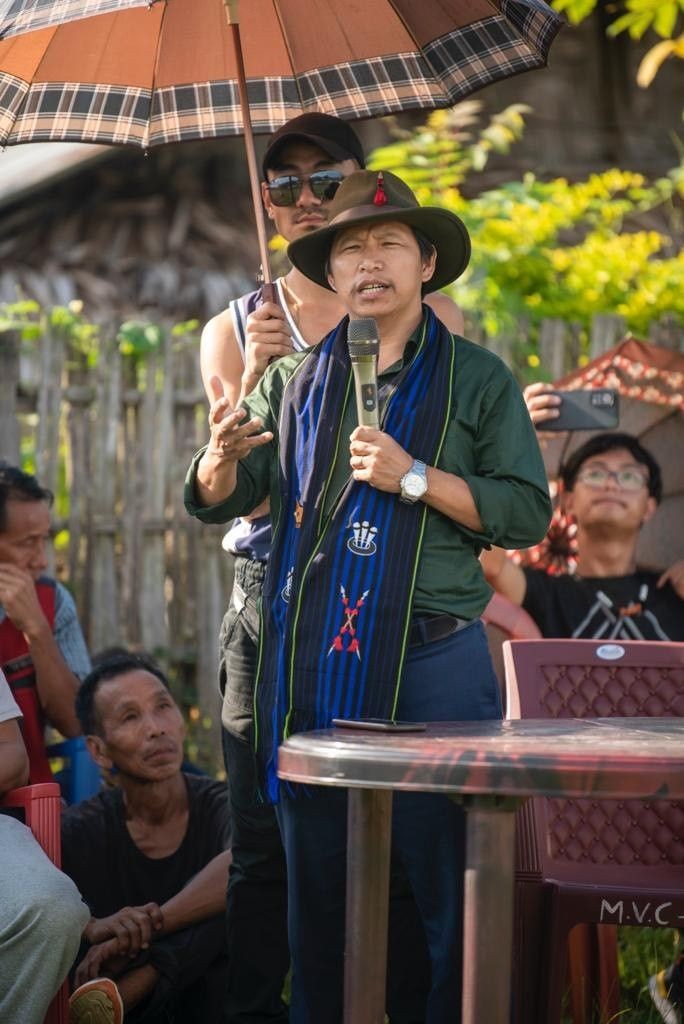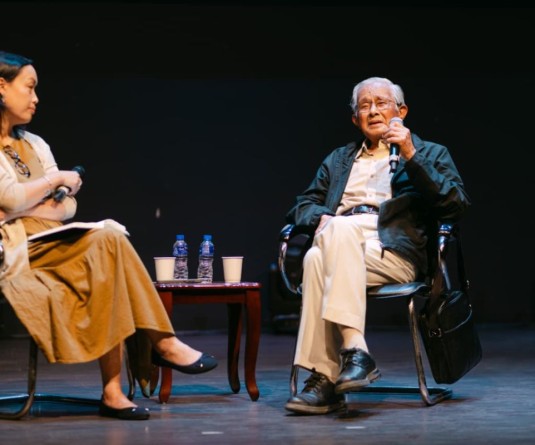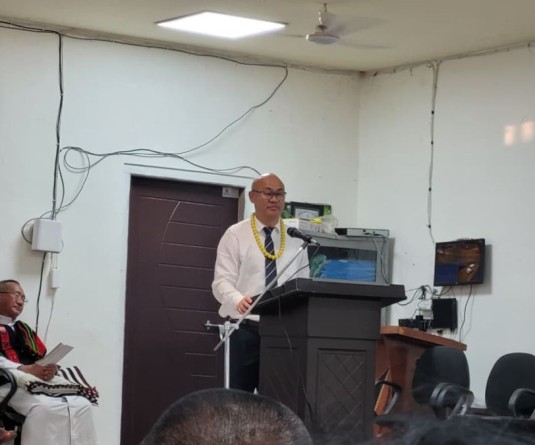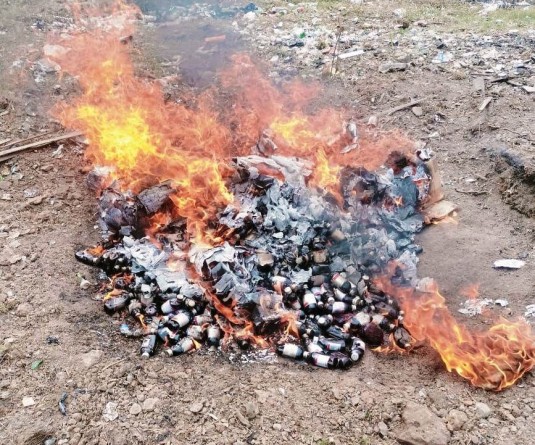MLA Achumbemo Kikon conveys strong objection to the simultaneous election of the Lok Sabha and State Assemblies or ‘One Nation, One Election’ at the Sixth Session of the 14th Nagaland Legislative Assembly at NLA hall, Kohima on March 8. (File Photo)

Our Correspondent
Kohima | March 8
MLA Achumbemo Kikon today registered strong objection to the simultaneous election of the Lok Sabha and state assemblies and “do not subscribe to the concept of “One Nation, One Election.”
Making this remark during the proceeding of “Calling attention to matters of urgent public importance under Rule- 54” at the concluding day of the sixth session of 14th Nagaland Legislative Assembly (NLA) here today, Kikon urged Nagaland Legislative Assembly (NLA) speaker “that this matter (ONOE) be thoroughly discussed and debated in earnest in this August house at the appropriate time.”
Achumbemo Kikon, who represents Naga People's Front (NPF) from 40-Bhadhari Assembly Constituency to the 60 House of 14th NLA said that ONOE would invariably defeat the spirit of the federal structure “because India, being a union of states with a federal structure, makes it a direct assault on the very essence and fabric of the democratic features.”
“If ONOE is to be introduced, an overhauling of the Indian Constitution will be necessitated, most probably ending up with the adoption of a system like List Party Proportional Representation (LPPR), which is too complex for the Indian masses,” said.
Kikon said that India has a huge population and a large geographical area, and the majority of its people still live in villages. As a matter of fact, a system applicable in European countries will be far-fetched for the Indian electorate until India becomes a fully developed nation.
“I have no doubt in my mind that once the simultaneous election of the Lok Sabha and state assemblies is imposed, the relevance of regional political parties would be diminished, as the national agenda will overshadow regional and local issues,” Kikon said.
Moreover, he said, the national political parties would take the upper hand by using all sorts of enticing propaganda with the intention of hammering regional political parties, ultimately leading to a one-party rule akin to a communist-type government, which will only invite chaos and confusion in Indian polity and serve as a direct threat to Indian democracy.
It is also expected that the use of money power and misuse of government machinery would be rampant during elections by national political parties to wrest power if simultaneous elections are held for both parliamentary and state assemblies, he said adding that “This will definitely vitiate the atmosphere of free and fair elections, which will be yet another significant threat to Indian democracy.”
Summarizing some of the main reasons for his opposition to the concept of ONOE, Kikon said that the ONOE proposal undermines the federal balance enshrined in the Constitution by imposing a centralized electoral framework.
Synchronizing elections would erode the autonomy of states like Nagaland to address local issues through a region-specific mandate, he said.
Stating that regional parties play a critical role in amplifying tribal and local concerns, he said “ONOE risks overshadowing regional agendas with national narratives, favoring financial dominance by national parties.”
“Conducting simultaneous elections in Nagaland’s geographically challenging terrain would strain administrative resources, including security personnel and election officials, who are already stretched thin. While ONOE claims cost savings, the initial expenditure for synchronizing infrastructure (e.g., EVMs, voter rolls, etc.) would burden resource-crunched states like Nagaland, which generally rely on central funding for development,” Kikon said.
Kikon said that ONOE violates the "basic structure" doctrine by altering the constitutional separation of powers and diluting state sovereignty.
Fixed electoral cycles would reduce accountability, as voters lose the ability to hold governments responsible mid-term through state elections, he said.
“The ongoing peace process vis-à-vis political negotiations and unique constitutional protections (Article 371A) require uninterrupted attention. Frequent elections ensure timely political accountability, whereas ONOE could delay critical decision-making,” he said adding that centralized electoral campaigns may sideline Naga-specific issues, such as the Naga political struggle, in favor of the national party agenda.
After winning for the third consecutive term, Kikon said that the BJP is now vigorously advocating for ONOE like never before, “as their desire to remain in power for many long years is apparent.”
He urged the BJP to re-examine its stand on this matter (ONOE) and “reflect on how the party has grown stronger today with the support of regional political parties.”






